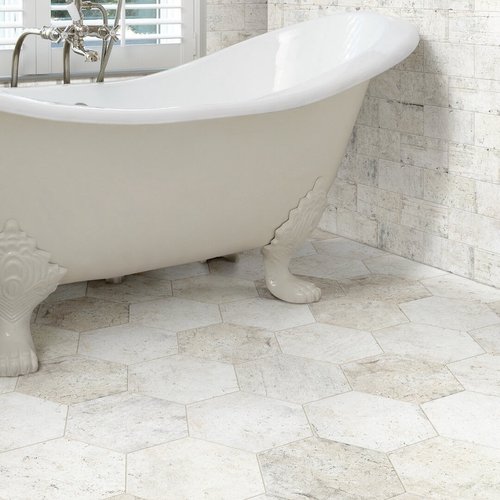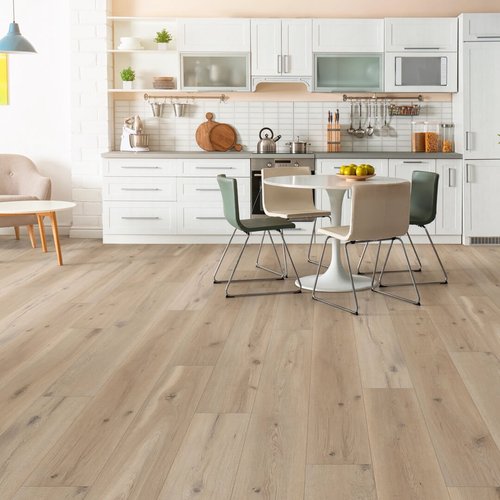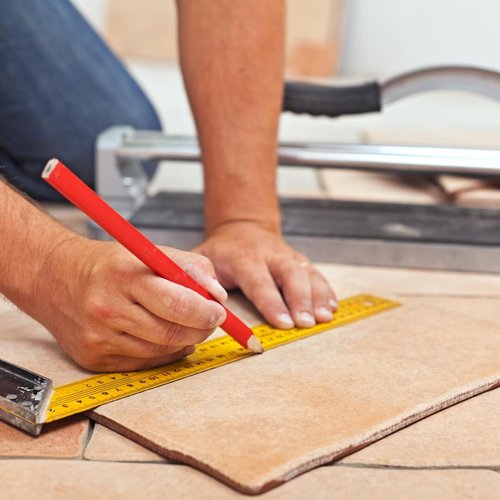Contact us to get started!
No obligations — let’s discuss your project and see how we can help!
Oviedo, FL.
| Mon | 10:00AM - 5:00PM |
| Tue | 10:00AM - 5:00PM |
| Wed | 10:00AM - 5:00PM |
| Thu | 10:00AM - 5:00PM |
| Fri | 10:00AM - 5:00PM |
| Sat | 10:00AM - 2:00PM |
| Sun | Closed |
After Hour Appointments Available Upon Request
July 9, 2025
Humidity can be hard on floors.
Whether it’s from daily showers, cooking steam, or moisture buildup in the basement, excess humidity has the potential to affect the way flooring performs over time.

Certain materials are more sensitive to environmental changes than others. Knowing how humidity interacts with various flooring materials, identifying early warning signs, and implementing preventative measures will help you protect your floors and avoid costly repairs.
Even when water isn’t visible, elevated humidity can affect how flooring looks, feels, and performs. The risk isn’t limited to leaks or spills. Daily moisture in the air can cause changes over time, especially in rooms with poor ventilation or inconsistent climate control.
Some flooring materials are more vulnerable to these effects, while others are better suited for humid environments. Understanding how different materials respond helps you avoid issues like swelling, warping, or mildew.
Some materials are more likely to show signs of damage when exposed to consistent humidity or moisture over time. Moisture in the air causes many flooring materials to expand and contract. This repeated movement puts stress on boards, seams, and adhesives, which can result in visible damage. These changes often go unnoticed until they affect the floor’s appearance or structural integrity.
Areas with poor ventilation, inconsistent heating, or higher moisture levels are more prone to issues.
Wood is naturally porous and absorbs moisture from the air. As humidity rises, hardwood planks expand. When the air dries out, they contract. This ongoing movement can cause wear over time, which is why it’s important to keep indoor humidity levels stable.
Signs of humidity-related movement include:
Engineered hardwood is generally more stable than solid wood but can still be affected if moisture is excessive or fluctuates frequently.
Laminate flooring typically has a fiberboard core, which absorbs moisture easily. If the laminate isn’t specifically designed to resist water, even limited exposure to humidity can lead to swelling and damage.
Humidity-related concerns with laminate include:
Standard laminate should not be used in high-humidity spaces unless it’s specifically rated for moisture resistance.
Humidity can have a significant impact on carpet, particularly on what’s beneath the surface. Moisture trapped in the padding or subfloor can lead to mold, mildew, or unpleasant odors.
When humidity is high, carpet may:
Synthetic fibers perform better than natural ones in these environments, but ventilation and moisture barriers are still key to long-term performance.
Other flooring types are designed to perform well in moisture-prone areas. They resist swelling, warping, and mold, making them strong options for bathrooms, basements, laundry rooms, and entryways.
Luxury vinyl (LVP or LVT) is built for durability in high-humidity areas. Its waterproof construction helps it remain stable regardless of indoor moisture levels.
Benefits include:
Even so, it should be installed over a dry, level subfloor with a moisture barrier as needed.

Ceramic and porcelain tile are virtually unaffected by humidity. They’re dense, nonporous, and dimensionally stable, which makes them ideal for wet or humid conditions.
Properly installed tile offers:
Grout and backing materials should be chosen carefully and sealed to prevent moisture infiltration below the surface.
Small seasonal gaps are normal. However, persistent or large gaps may indicate low humidity or installation issues.
Recommended steps:
Raised edges or buckling usually point to excess moisture exposure.
What to do:
Persistent dampness signals trapped moisture, increasing risk for mold.
Suggested actions:
A successful flooring installation in a humid area depends on more than product choice. Even the most moisture-resistant materials can fail if they’re not installed correctly. Whether you’re finishing a basement or remodeling a bathroom, the right prep and methods make a measurable difference.
Key considerations include:
When these factors are addressed up front, floors last longer and require fewer repairs, especially in moisture-sensitive areas.

Even moisture-resistant flooring benefits from thoughtful upkeep. Routine maintenance not only keeps floors looking their best but also helps prevent long-term issues caused by trapped humidity or standing water.
Here are a few habits that help:
Consistent care helps minimize movement, discoloration, or odor caused by moisture and supports the long-term performance of your flooring investment.
In rooms where moisture and humidity are part of daily life—like bathrooms, laundry areas, basements, and entryways—it’s best to choose flooring that resists swelling, warping, or mold growth.
Not every moisture-resistant floor works in every space. The right choice depends on the room’s purpose, ventilation, and how often it deals with water or steam.
Top choices for humid areas include:
Moisture is an inherent part of daily life in kitchens, bathrooms, basements, and other spaces. However, with the right materials and careful attention to detail, it does not have to inflict lasting damage.
At Carpets And More, we help homeowners in Oviedo, FL find flooring that withstands humidity without compromising style, comfort, or durability. Whether updating a single room or building from the ground up, our team can guide you toward durable, low-maintenance options that fit both your needs and your space.
No obligations — let’s discuss your project and see how we can help!
| Mon | 10:00AM - 5:00PM |
| Tue | 10:00AM - 5:00PM |
| Wed | 10:00AM - 5:00PM |
| Thu | 10:00AM - 5:00PM |
| Fri | 10:00AM - 5:00PM |
| Sat | 10:00AM - 2:00PM |
| Sun | Closed |
Let one of our experts help you find the perfect floor!
Thank you! We'll be in touch shortly.
Let one of our experts help you find the perfect floor!
Thank you! We'll be in touch shortly.